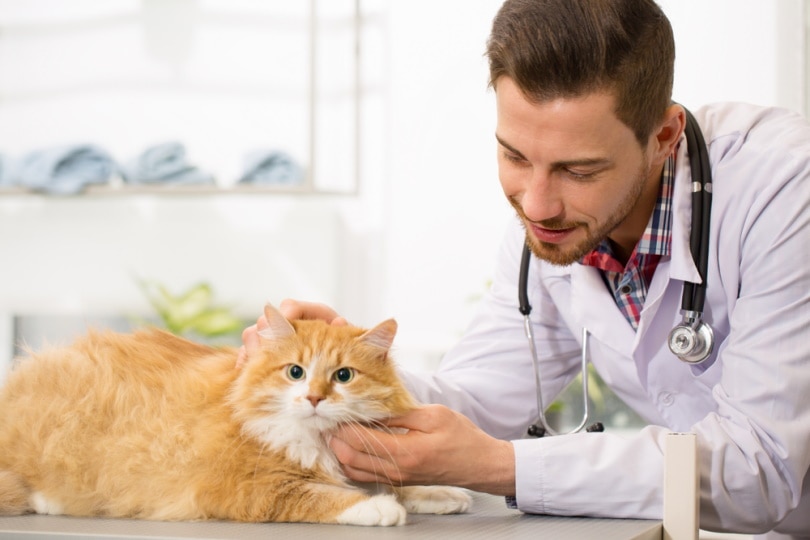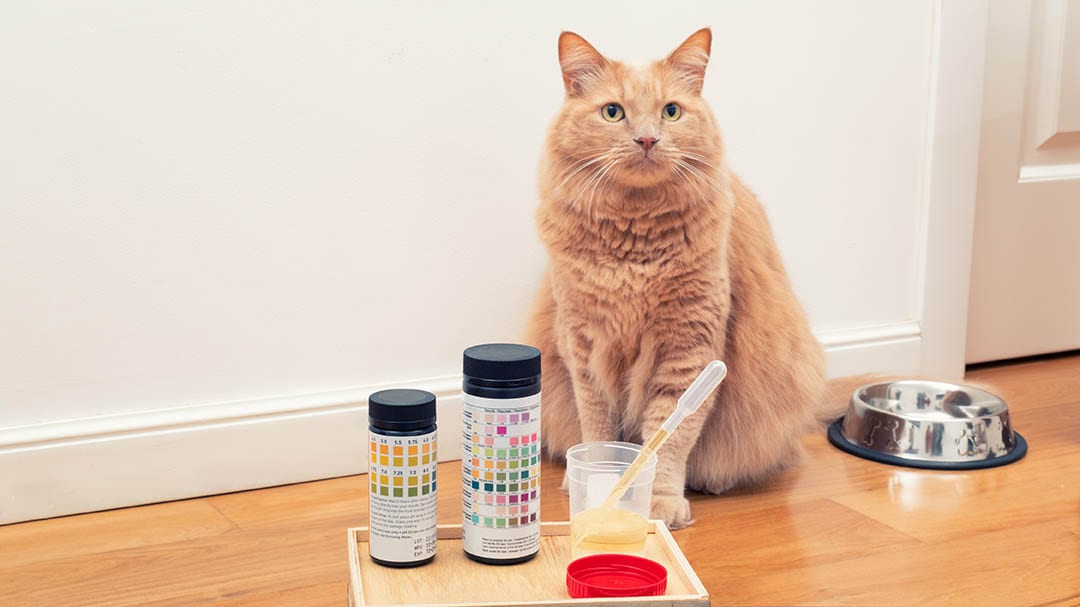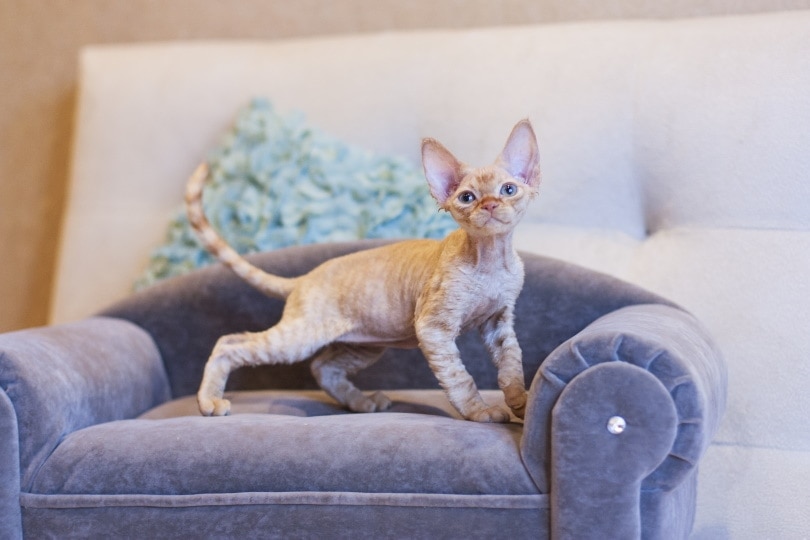12 Plants That Are Poisonous or Toxic to Cats (With Pictures)

Updated on
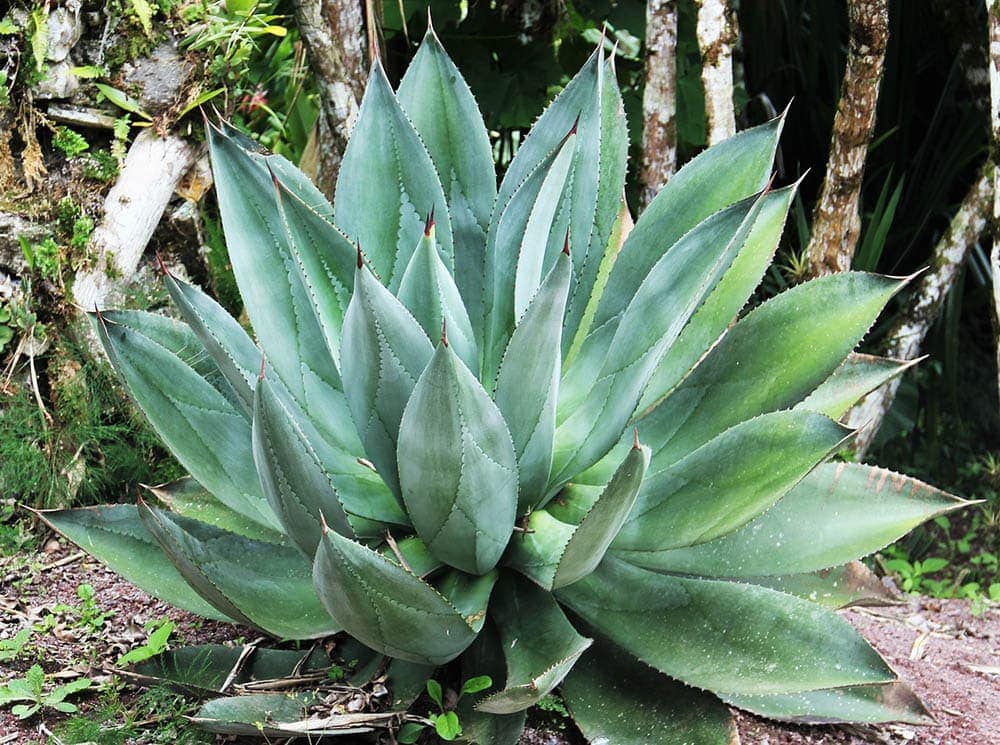
Cats are curious by nature and love to check out new things. They’re also notorious for getting into things that we don’t want them to touch! We want to keep our cats safe, and that includes not having anything toxic within their reach in the home (or outside of it, if your cat goes outdoors). Plants are fun to decorate the house and liven up a room with, but many can be harmful to cats. Before we decide to bring that beautiful plant home, as pet owners, we have to make sure it’s not toxic to our furry companions. Always check first to see if a plant that you want will hurt your pets in any way. Browse this list of toxic plants to see if any that you’re considering getting — or already own — are named. If you think that your cat has ingested any toxic substance, seek immediate veterinary care or call poison control right away.
Hundreds of plants are toxic to cats. A more comprehensive list is available, but we’ve chosen 12 common house and garden plants that you should avoid bringing into or around your home if you have cats.1 However, no list will be complete, as there are more than 390,000 identified plant species.2 If you suspect that your cat ate a plant that made them ill, consult your vet right away.
The 12 Plants That Are Toxic to Cats
1. Lilies — The Most Dangerous
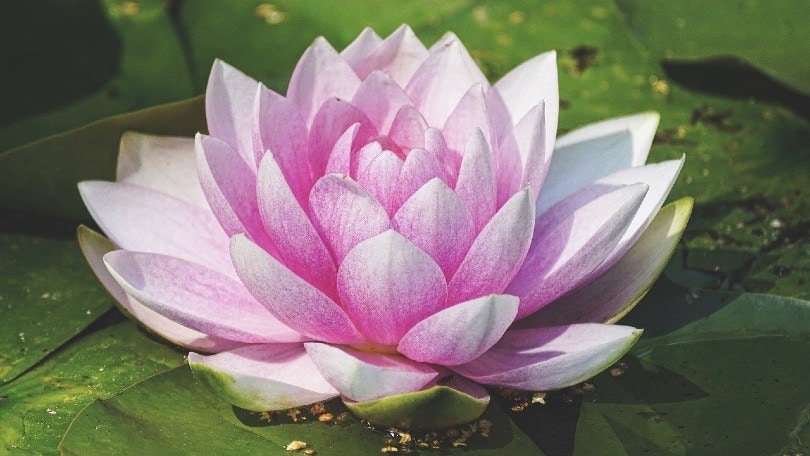
| Reason for toxicity: | Unknown component |
| Signs of poisoning: | Vomiting, drooling, loss of appetite, increased urination, dehydration, no urination at all after 12–24 hours |
People favor lilies because of their beauty and strong scent, but they top this list due to their high toxicity to cats. It’s common for bouquets to include lilies. Easter lilies are regular springtime additions to many homes. But if there’s a cat in the house, this is incredibly dangerous. The leaves, flowers, pollen, and even the scent of lilies can make a cat sick. If they don’t go near the flowers, they could still inhale the pollen that sheds from them. They could even become dangerously ill if they drink the water from the vase. All lilies are toxic to cats. The result of lily poisoning in cats is kidney failure. The reason that lilies are so lethal to cats has not yet been pinpointed. All that’s known is that a chemical in the plant destroys the kidneys. Keep lilies out of the house if you have a cat. If you think that your cat has ingested any part of a lily, this is a medical emergency and your cat should be taken to a veterinarian immediately.
2. Sago Palm
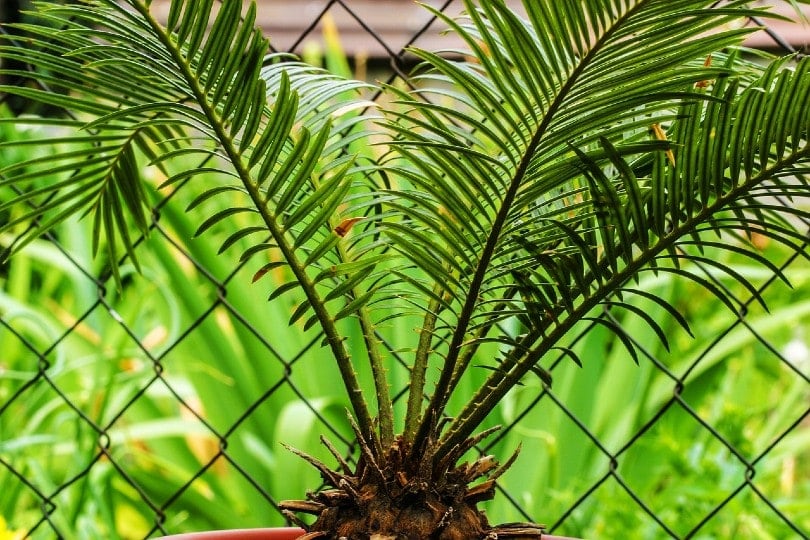
| Reason for toxicity: | Cycasin |
| Signs of poisoning: | Vomiting, bloody stool, increased thirst, jaundice, seizures, drooling, lethargy |
The Sago Palm is lovely to add to your home and gives a tropical feel to any home. This plant is also used outdoors to liven up patios and backyards. While true palms are non-toxic to cats, the Sago Palm is technically a cycad. They can cause gastrointestinal distress, liver failure, seizures, and even death in cats. The illness could start immediately after the cat eats part of this plant. Even though this is a common plant to use as décor in and around the house, avoid this type if you have a cat.
3. Tulips

| Reason for toxicity: | Tulipalin A and B |
| Signs of poisoning: | Diarrhea, vomiting, drooling, lethargy, depression, dazed state |
A fun springtime flower is the tulip. Available in various colors and petal shapes, they are a bright, cheery way to decorate a room. It can be hard to believe that these beautiful flowers could cause harm to your feline friend. While the tulip bulb is the most toxic part, the entire plant is dangerous for your cat, from the leaves to the flowers. If you have cats, choosing a different springtime flower to decorate your home is the safest thing to do. Tulips are also toxic to dogs and horses.
4. Jade
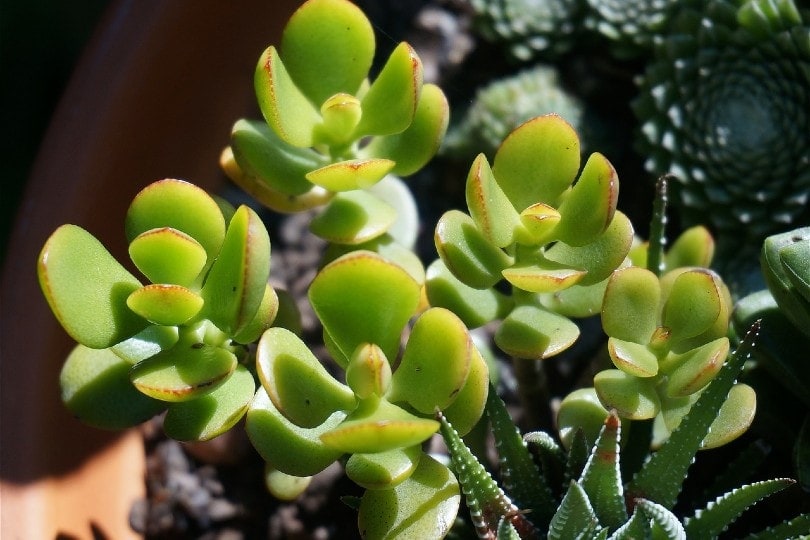
| Reason for toxicity: | Unknown component |
| Signs of poisoning: | Incoordination, diarrhea, rapid heartbeat, lack of energy, excessive sleeping, aggression |
5. Aloe Vera
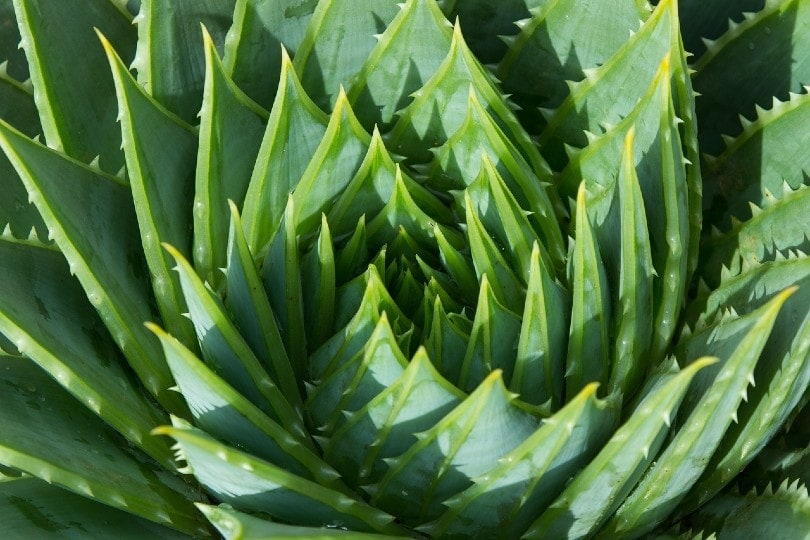
| Reason for toxicity: | Saponins |
| Signs of poisoning: | Diarrhea, lethargy, gastrointestinal noises/obvious pain, loss of appetite, depression |
6. Hydrangea
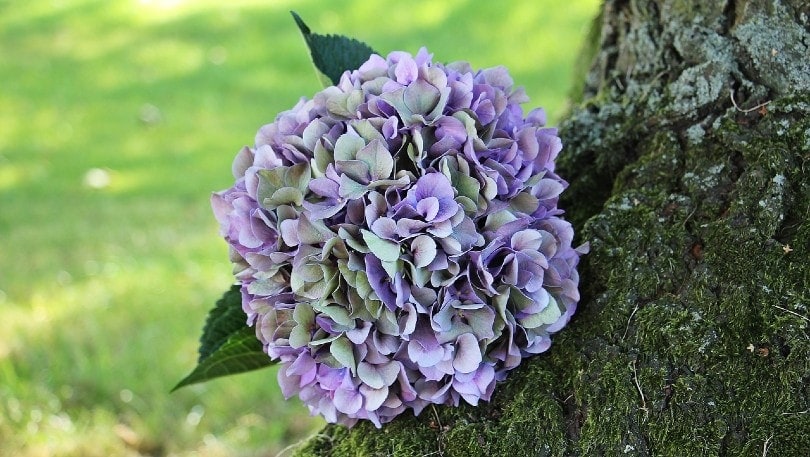
| Reason for toxicity: | Amygdalin (cyanogenic glycoside) |
| Signs of poisoning: | Disorientation, vomiting, bloody diarrhea, lethargy, drooling |
7. Wisteria
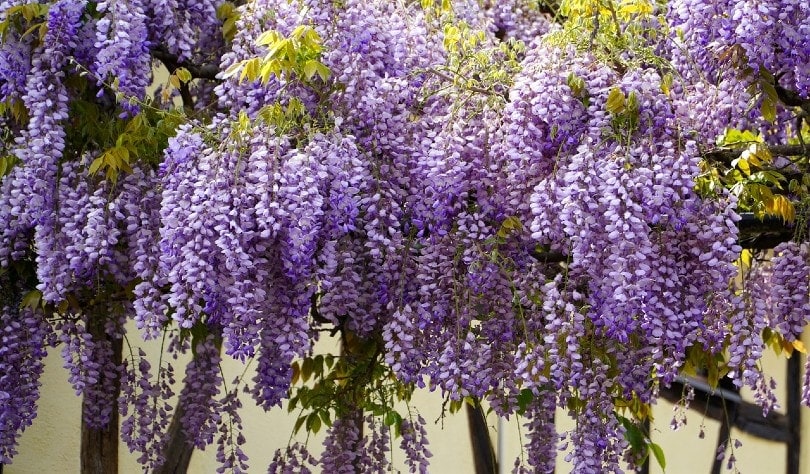
| Reason for toxicity: | Lectin, wisterin glycoside |
| Signs of poisoning: | Vomiting, bloody diarrhea, dehydration, confusion, collapse |
8. Dumb Cane

| Reason for toxicity: | Calcium oxalate crystals |
| Signs of poisoning: | Oral irritation, difficulty breathing, drooling, pawing at the mouth, vomiting |
9. Snake Plants
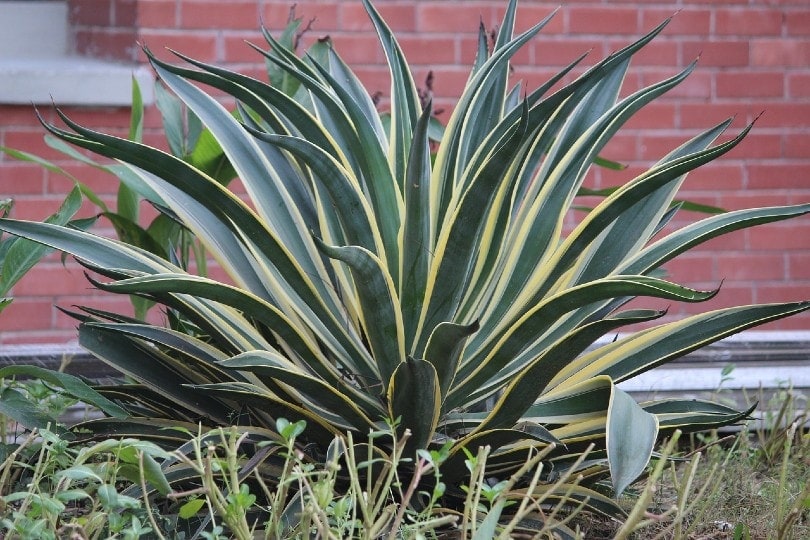
| Reason for toxicity: | Saponins |
| Signs of poisoning: | Nausea, vomiting, diarrhea, drooling, loss of appetite, swelling of the tongue and mouth |
10. Eucalyptus
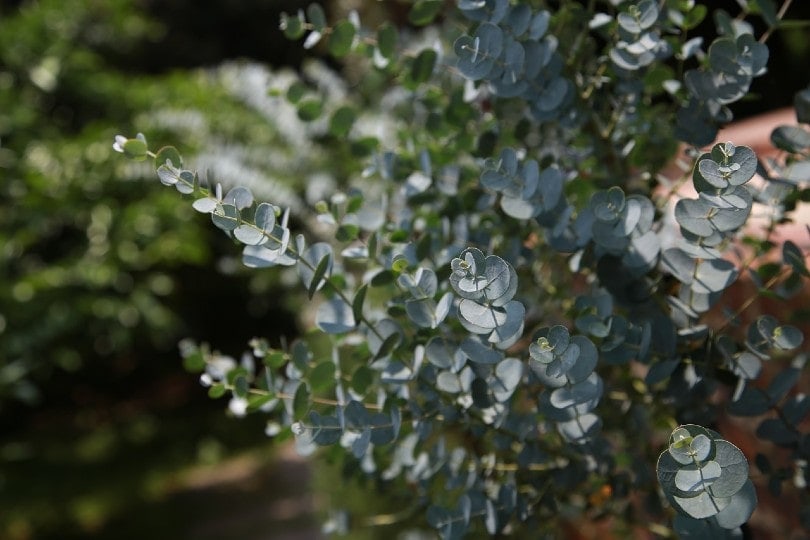
| Reason for toxicity: | Eucalyptol |
| Signs of poisoning: | Drooling, seizures, decreased appetite, diarrhea, vomiting |
11. Poinsettia
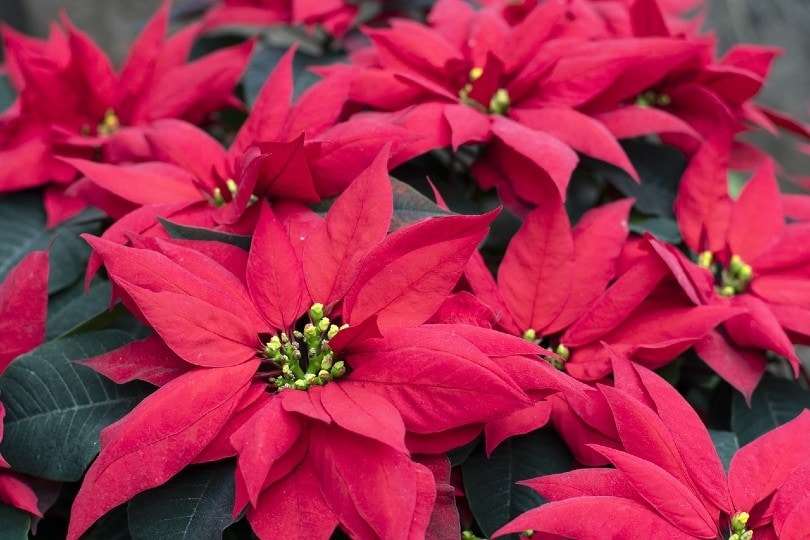
| Reason for toxicity: | Irritant sap |
| Signs of poisoning: | Irritation of the mouth, stomach pain, vomiting |
12. Tomato
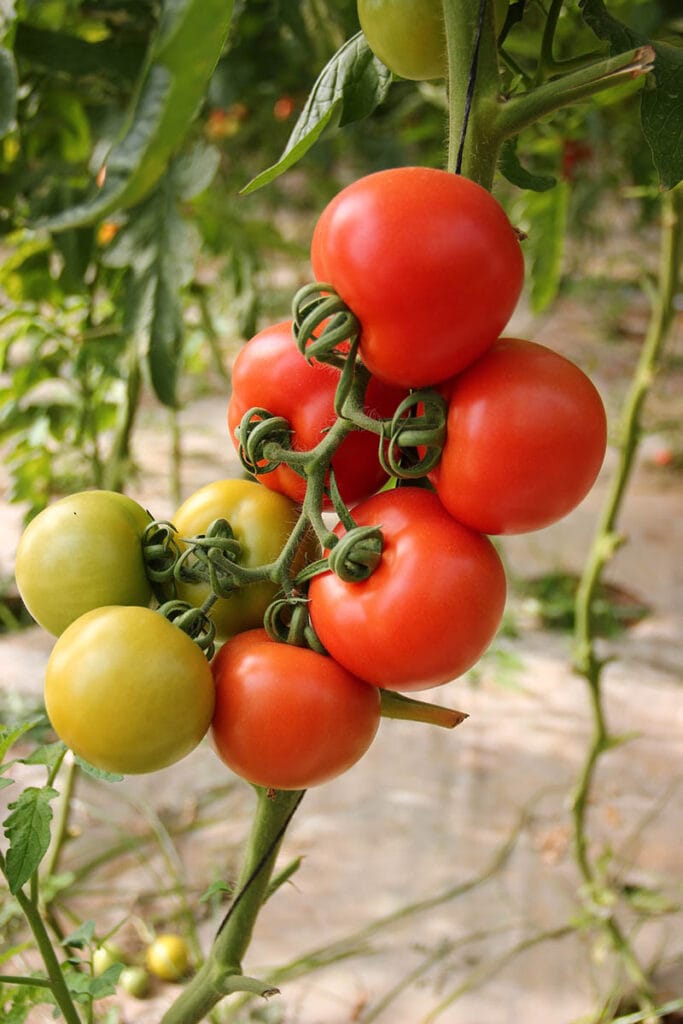
| Reason for toxicity: | Solanine |
| Signs of poisoning: | Drooling, diarrhea, vomiting, confusion, weakness, change in behavior, dilated pupils, slow heart rate |
Watch for These Signs
It’s always important to check to see if the plants in your home can safely be around your cat, but sometimes accidents happen. If you don’t think that the plants in your home are toxic but don’t know for sure, pay attention if your cat starts showing these signs of illness. It could mean that they consumed something poisonous. Check your plants for evidence of chewed leaves, disheveled dirt, or missing stems or flowers. Give the name of the plant to your vet so they can provide proper treatment. Some plants don’t need to be swallowed to be poisonous. They can cause harm to your cat even if they only chewed the leaves.
- Confusion
- Hiding
- Difficulty eating/swallowing
- Vomiting
- Irritated mouth (pawing at the mouth, drooling, swelling)
- Diarrhea
- Excessive drooling
- Increased or decreased thirst
- Loss of appetite
- Lethargy
- Weakness
The Cat Isn’t Showing Symptoms
Cats are skilled at hiding injuries and illnesses. Sometimes we don’t know anything is wrong until the situation has become dire. If you find evidence of a chewed toxic plant and your cat isn’t acting sick, call your vet or poison control to see what your next steps should be.
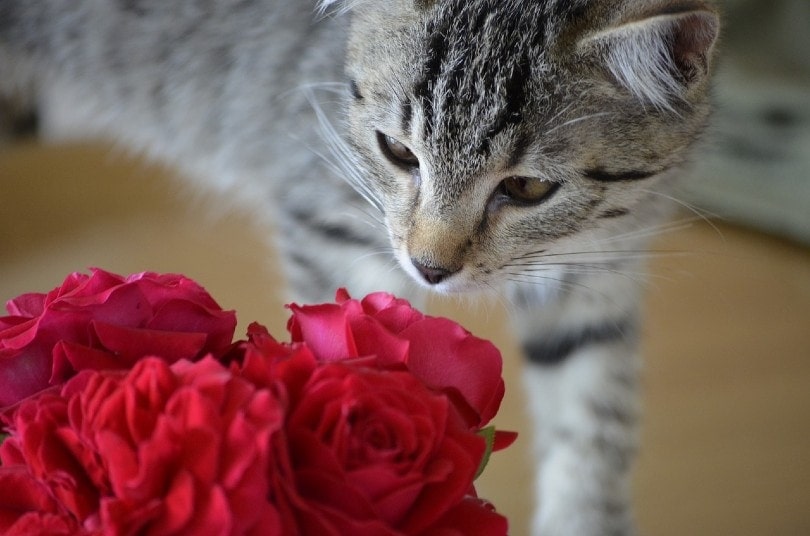
Are Any Plants Safe for Cats?
Many plants are safe for cats! Browse popular safe plants here or check out a longer list.
Final Thoughts
Plants are ideal for decorating your home and bringing a room together. But while they may look nice, many are dangerous to cats. Researching new plants that capture your interest before you bring them home is the best way to keep your cat safe. Non-toxic plants or no plants at all are better than winding up with a severely ill cat. If you’re concerned about the toxicity of a plant and can’t find the information online, consult your vet. In cases of uncertainty, err on the side of caution, and don’t bring home any plant unless you know for sure that it’s safe for your pets.
You might also be interested in:
- Is Alstroemeria Toxic to Cats? Keeping Your Cat Safe
- My Cat Ate Poisoned Mouse, What Should I Do? Vet Approved Advice
Featured Image Credit: ASSY, Pixabay


